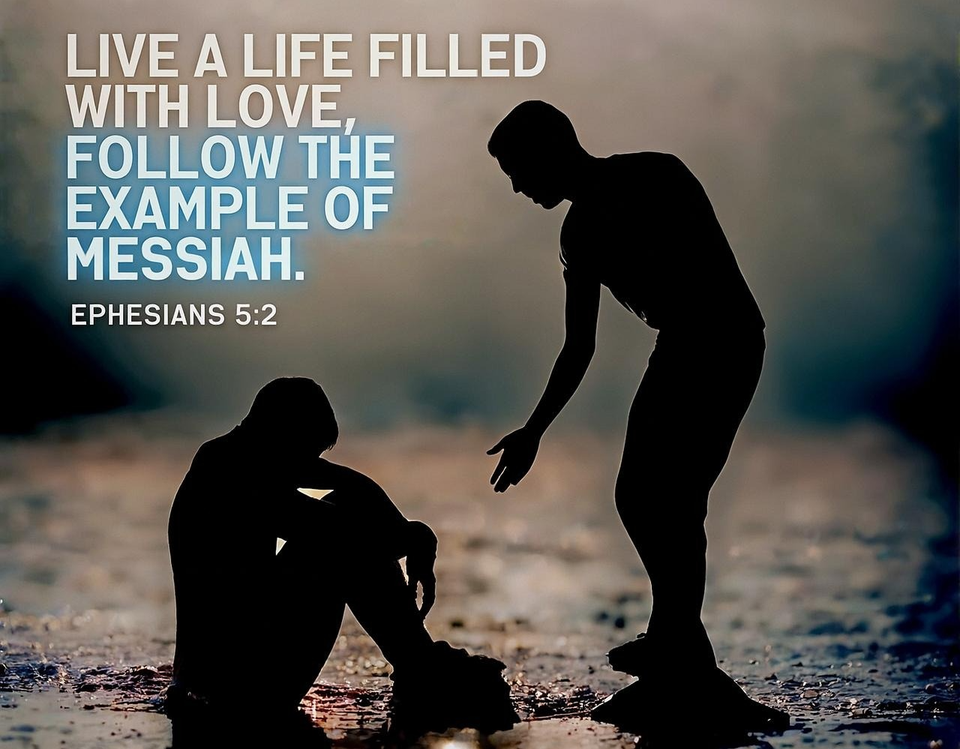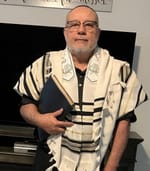Y'HOSHUA FULFILLING THE TORAH!

“Do not think that I came to destroy the Torah or the Prophets. I did not come to destroy but to fulfill.”
— Mattityahu (Matthew) 5:17, TS2009
The Torah Reveals the Character of Y’hovah
The Torah of Y’hovah sets an infinitely high standard, for it reflects His own nature:
“Rather, you people are to be holy for Me; because I, Y’hovah, am holy; and I have set you apart from the other peoples, so that you can belong to Me.”
— Vayikra (Leviticus) 20:26, CJB
“More than anything, keep loving each other actively; because love covers many sins.”
— Kefa Aleph (1 Peter) 4:8, CJB
“Therefore, be perfect, as your Father in the heavens is perfect.”
— Mattityahu (Matthew) 5:48; cf. Berĕshith 17:1; Tehillim 119:1; 1 Yochanan 2:5; Ivrim 6:1
Holiness, love, and perfection — these are not merely ideals; they are the very essence of Y’hovah’s Torah.
Faced with this, we might ask: “Who could ever fulfill such righteousness?”
The answer: Y’hoshua HaMashiach, the Living Torah, who came not to destroy it, but to fulfill it completely.
Y’hoshua Fulfilled the Torah in His Life
Y’hoshua lived every commandment perfectly, walking in complete alignment with the will of His Father.
He didn’t simply teach the Torah — He demonstrated it.
Every word, act, and thought of Y’hoshua revealed what it looks like when a person walks in total obedience to Y’hovah’s will.
“For I have given you an example, that you should do as I have done to you.”
— Yochanan (John) 13:15
Throughout His life, Y’hoshua became the living example of the Torah in action, showing His talmidim what it means to walk in righteousness, compassion, and truth.
We can only follow His example by the power of the Ruach HaKodesh.
“And I will put My Spirit within you and cause you to walk in My statutes.”
— Yeḥezqel (Ezekiel) 36:27
Y’hoshua Fulfilled the Torah in His Death
The Torah declares:
“The soul who sins shall die.” — Yeḥezqel (Ezekiel) 18:4
“For the wages of sin is death.” — Romiyim (Romans) 6:23
The Torah also provided a way for atonement — a sacrificial substitute.
Y’hoshua, as the spotless Pesach Lamb, bore our penalty upon Himself.
“But Y’hovah demonstrates His own love toward us, in that while we were still sinners, Mashiach died for us.”
— Romiyim (Romans) 5:8
In His death, Y’hoshua fulfilled the righteous demands of the Torah’s justice and revealed the fullness of Y’hovah’s mercy.
He paid the price that the Torah demanded, so that we could live as its recipients of grace.
Y’hoshua Fulfills the Torah in Us Today
Fulfillment didn’t end at the cross — it continues in us through His indwelling Spirit.
Y’hoshua desires to live His Torah-life through His talmidim.
As we yield our hearts, His Ruach empowers us to walk in obedience, not by our own strength, but by His.
“Messiah, who is our life…” — Qolosim (Colossians) 3:4
“It is no longer I who live, but Messiah lives in me; and the life I now live in the flesh I live by faith in the Son of Elohim.”
— Galatim (Galatians) 2:20
We do not keep the Torah to earn salvation; we keep it because salvation has already been given, and we love the One who saved us.
Y’hoshua’s fulfillment of the Torah enables us to live in genuine righteousness — not through legalism, but through relationship and transformation.
A Living Torah in Our Hearts
Through Y’hoshua, the Torah is written on our hearts as promised in the Renewed Covenant:
“I will put My Torah in their inward parts and write it on their hearts.”
— Yirmeyahu (Jeremiah) 31:33
When the Torah becomes internal — not external law but internal life — we begin to live as a reflection of His holiness.
This is what it means to be His talmidim, His living scrolls of righteousness and love.
A Call to Walk as He Walked
Y’hoshua fulfilled the Torah completely —
in His life,
through His death, and
within His people.
Now He calls us to walk in the same derekh (way) — not abolishing, but living the Torah in sincerity and truth.
Through His Ruach, we are empowered to walk in holiness and demonstrate His Kingdom on earth.
“Blessed are those who hear the Word of Elohim and guard it!”
— Luqas (Luke) 11:28, TS2009
By Rabbi Francisco Arbas
📧 franciscoarbas.yisrael@gmail.com
Following His ‘WAY’ — Netzari Mashiach Judaism

Comments ()